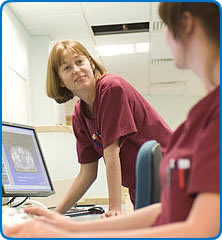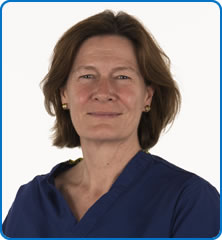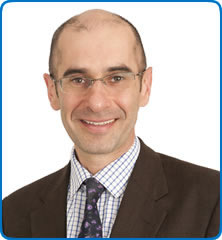Sarcoma Cancer Services
 Sarcomas are a rare group of cancers which should therefore be treated by a specialist team experienced in their management.
Sarcomas are a rare group of cancers which should therefore be treated by a specialist team experienced in their management.
Sarcomas arise in connective tissue such as
- Muscle.
- Fat.
- Bone.
The Bristol Sarcoma Service (BSS) manages sarcomas for Bristol and the surrounding region including:
- Bath.
- Weston.
- Yeovil.
- Taunton.
Other south west regional services are currently located in Exeter and Plymouth.
The BSS is based across both North Bristol NHS Trust (NBT) and University Hospitals Bristol and Weston NHS Foundation Trust (UHBW). The BSS predominately investigates and treats soft tissue sarcomas.
There is a weekly MDM (Multi-disciplinary team meeting) on Tuesday morning between 08:30am – 10:00am at Southmead Hospital Bristol, where each patient case is discussed by specialist:
- Radiologists.
- Pathologists.
- Surgeons.
- Oncologists.
- Clinical Nurse Specialists.
Please see the Sarcoma Core Team page for more details on our multi-disciplinary team.
After the MDM, the team attends a sarcoma clinic from 10:00am – 12:30am. During your clinic appointment you will meet with one of the consultant plastic surgeons to discuss your case. You may also meet the sarcoma clinical nurse specialists, oncologists or the specialist physiotherapist. If you are having a biopsy taken, you will meet one of the consultant radiologists during this appointment.
Primary bone sarcomas are investigated and treated by our colleagues in Oxford. The oncologists attend the weekly Oxford MDM via video-link on Monday mornings to discuss primary bone sarcomas. One of the Oxford surgeons visits a joint clinic at Southmead Hospital once a month. One of the Oxford surgeons visits a joint clinic in Bristol once a month.
Soft Tissue Sarcomas
Plastic surgical services and retroperitoneal surgical services are performed at Southmead Hospital, Bristol.
Oncological services, including radiotherapy and chemotherapy, are located at the Bristol Haematology and Oncology Centre (BHOC).
Other surgery such thoracic surgery is performed at the Bristol Royal Infirmary.
Gynaecological sarcomas are managed by the team at St Michael’s Hospital.
Contact Sarcoma Service
Patient Pathway Co-Ordinator
Lisa Groves, Charlotte Brown
Telephone: 0117 414 7605
Email: sarcomapatientpathwaycoordinators@nbt.nhs.uk
Oncology secretary
Telephone: 0117 3422417
Email: bhocmedsecsteam3@uhbristol.nhs.uk
MDT Coordinator
Amy Dixon
Fax: 0117 4140532
Email: cancerservices@nbt.nhs.uk
Sarcoma Nurse Specialist
Christine Millman, Becky Peach, and Sally Lovell
Telephone: 0117 4147453
Email:SarcomaSpecialistNurses@nbt.nhs.uk



